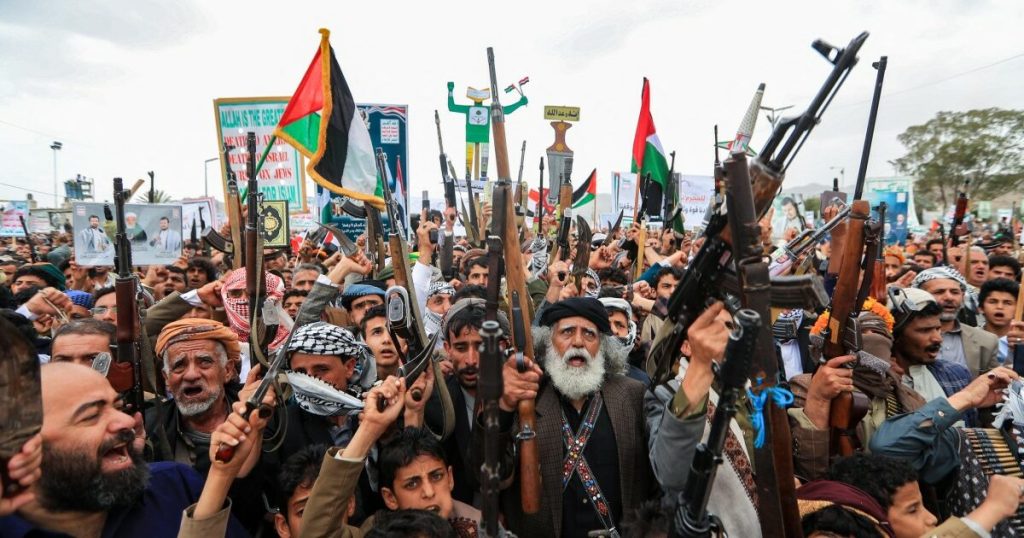The escalating conflict between Israel and Hamas has ignited a firestorm of international concern, culminating in a stern warning from the United Kingdom, France, and Canada. These nations, deeply troubled by the humanitarian crisis unfolding in Gaza, have called on Israel to halt its military operations and permit the immediate entry of aid into the besieged territory. The joint statement issued by the three countries criticizes the ongoing blockade, which has choked off the flow of essential supplies like food, fuel, and medicine since early March, creating what they describe as an “intolerable” humanitarian situation. This stark rebuke underscores the growing international pressure on Israel to address the dire consequences of its military actions and their impact on the Palestinian civilian population. The coordinated stance from these key Western nations signifies a unified front against what they perceive as disproportionate force and a disregard for international humanitarian principles.
Israel’s Prime Minister, Benjamin Netanyahu, has vehemently rejected the international criticism, accusing the Western leaders of effectively rewarding Hamas by demanding a ceasefire before the militant group’s defeat. He argues that such calls, coupled with discussions of a Palestinian state, embolden future attacks against Israel. Netanyahu’s stance reflects a deep-seated distrust of international mediation and a belief that only a decisive military victory against Hamas can guarantee Israel’s security. While he has conceded to allowing a “basic amount of food” into Gaza following an 11-week blockade, he remains steadfast in his commitment to maintaining control over the entire territory. This partial concession, however, has been deemed “wholly inadequate” by the UK, France, and Canada, who warn that it could constitute a violation of international humanitarian law. This disparity in perspectives further complicates the already convoluted path towards a resolution and highlights the deep divisions that exist between Israel and much of the international community.
The international community’s concerns extend beyond the immediate humanitarian crisis to encompass the broader political implications of the conflict. The joint statement condemns rhetoric from certain members of the Israeli government that suggests the potential for forced displacement of civilians, emphasizing that such actions would unequivocally breach international legal norms. This warning underscores the gravity of the situation and the potential for even further human rights violations. The United Nations has echoed these concerns, with the humanitarian relief chief, Tom Fletcher, describing the current level of aid access as a mere “drop in the ocean” compared to the overwhelming need in Gaza. This dire assessment highlights the sheer scale of the humanitarian catastrophe and the urgent need for increased assistance to alleviate the suffering of the Palestinian population.
While acknowledging Israel’s right to self-defense, the UK, France, and Canada have stressed that the military escalation has become disproportionate to the threat posed by Hamas. This delicate balancing act between recognizing Israel’s security concerns and condemning its actions reflects the complex diplomatic landscape surrounding the conflict. Simultaneously, the three nations have urged Hamas to release the hostages taken during the October 7th attacks – a critical component of any potential path towards de-escalation. These attacks, which resulted in approximately 1,200 deaths and the capture of 251 individuals, marked a significant escalation in the conflict and further complicated efforts to find a peaceful resolution. With Israeli estimates indicating that 58 hostages, including up to 23 who are believed to be alive, remain in Gaza, the hostage situation remains a major obstacle to progress.
The immense human cost of the conflict is staggering. Gaza’s Hamas-run health ministry reports over 53,000 Palestinian deaths since the beginning of the hostilities, a grim statistic that underscores the devastating impact of the violence. This figure paints a harrowing picture of the suffering endured by the Palestinian population, highlighting the urgency of finding a sustainable solution to the conflict. The escalating death toll underscores the critical need for a ceasefire and reinforces the international community’s calls for a peaceful resolution to prevent further loss of life. The sheer number of casualties serves as a stark reminder of the human cost of this protracted conflict and the urgent need for a diplomatic solution.
At the heart of the international community’s proposed solution lies the two-state model – the establishment of an independent Palestinian state alongside Israel. This long-standing proposal, repeatedly reiterated in the joint statement, represents the international consensus on a path towards lasting peace in the region. However, Netanyahu has firmly rejected this approach, aligning himself with former US President Donald Trump’s vision for resolving the conflict. This divergence in views presents a significant challenge to achieving a negotiated settlement and underscores the deep divisions that persist between the parties involved. Netanyahu’s refusal to engage with the two-state solution further complicates the prospects for peace and highlights the difficulty of bridging the gap between the conflicting perspectives. The international community’s continued emphasis on the two-state solution, despite its rejection by Israel’s leadership, underscores the enduring belief that this framework remains the most viable path towards a just and lasting peace.


